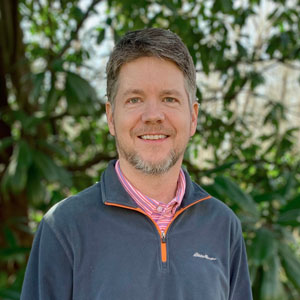Spartanburg Herald-Journal Op-Ed: In South Carolina, we are all connected by a web of water
October 23rd, 2022
By Richard Carr
This was originally published as an opinion-editorial by the Spartanburg Herald-Journal. To read it on the SHJ website, click here.
 Growing up, my family had a farm on the Broad River just above Lockhart. It was a working farm for my great uncle and his family, but for my grandmother’s side, it was a natural wonderland.
Growing up, my family had a farm on the Broad River just above Lockhart. It was a working farm for my great uncle and his family, but for my grandmother’s side, it was a natural wonderland.
In my youth, my cousins and I spent our summers there working in the garden, riding horses and cooling off in the river. In the fall, we would gather for warm fires, large meals and hunt wild game in the bottoms of that same river. Many things have changed about that farm and our families over the years, but not much has changed about that river. It has been the one constant in all our lives.
My kids have a running joke with me, one I ingrained in their heads every time we would drive over a bridge with a local river below, “Yeah, yeah, Dad, we know. If we were to hop in that river, we could float all the way to the farm.” Maybe I oversold that idea just a bit, but the truth is, if you live in Spartanburg County (or Cherokee or Union), every creek, stream and river eventually finds its way to the Broad and into the larger Santee River Basin.
For context, the Santee River Basin flows from the mountains to the coast, and one could argue that if you spilled your drink while sitting outside at a table in Morgan Square, it would eventually find its way to the Atlantic Ocean just south of Georgetown. The course that drink would take, however, would wind its way down Fairforest Creek, the Tyger River, the Broad River, the Congaree River, and eventually the Santee River.
To me, two conservation lessons stem from these local stories. The first is that we are all connected by a web of water. The creek in your backyard, which is fed by the water running off your lawn or driveway, ultimately becomes everyone’s water. We are all connected, either upstream, downstream or both, from one another. This web of water is also the source of our drinking water across the state, even though it originates from small, intimate locations like your backyard. We all have a part in protecting one of our state’s most precious natural resources.
The second lesson is how important the land is for protecting our water quality. Recently I met the authors of a study that evaluated ecosystem services within the Santee River Basin. The study itself is broad in scope, but at its heart demonstrates how the land contributes to the quality of our river ecosystems. In that study, for instance, they found that forested land, which is only 50% of the basin’s total land, provides 80% of the sediment retention, effectively keeping just under 850 million tons of soil from eroding into our rivers each year.
On the flip side, urban or developed land, which is only 13% of the basin’s total land, provides 46% of the total water yield, what we often call “runoff,” effectively adding 112 trillion cubic meters of runoff into our creeks, streams and rivers each year. As we have seen in our state in recent years, this level of runoff can be damaging and even deadly.
Studies like this demonstrate the importance of how we all manage our land in relation to our water. As Spartanburg County grows, and forests and fields are lost to increasingly urban and suburban development, we will eventually have to deal with the increased volume of water and erosion that at times will flood our rivers.
Our local conservation community is keenly aware of this issue and nonprofits like the Spartanburg Area Conservancy (SPACE), Upstate Forever, The Tyger River Foundation and others are working to protect lands around our waters, as well as encouraging and educating local policymakers to make smart decisions as we grow.
I hope you will learn more about this important issue and support the work of those who protect the lands that protect our water.
Richard Carr is a Land Conservation Specialist for Upstate Forever. He can be reached at rcarr@upstateforever.org.

